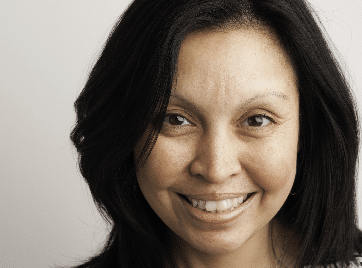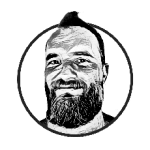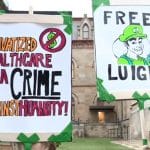After 28 years of nursing I could potentially consider myself an expert in the field. But this perception couldn’t be further from the truth. I still come home from a shift and often wonder and hope that I brought comfort to at least one patient. Did I do enough? After all these years, why would I doubt myself?
I know in my heart I always put patients first, but two words come to mind during this reflection. . .self preservation. In a way, I am defending myself from settling into a state of complacency in order to remain flexible, functional, and forever striving to do better. I fear the all too common issue of burnout and loss of the ability to feel compassion. Therefore, I make sure to check myself by adapting to what is new in order to keep up with the ever changing landscape of healthcare. We all know the amazing technological advances in healthcare delivery and process, but health providers must sustain a foundation of human contact and mutual respect with the community and each patient. The relationships and trust that bond people can never be replaced by digital applications and artificial intelligence. Peer-to-peer and practitioner-to-patient dialogue is key to better outcomes physically, mentally, and spiritually. I believe what makes us human makes us great.
The importance of human collaboration came to fruition in 2008 when I was on the other side of patient care. At the age of 62, my father passed away in an ICU. His ICU course came as a result from postoperative complications after lung resection for cancer. He developed sepsis and multi-system organ failure. I watched him deteriorate in front of my eyes and observed as doctors, nurses, nursing assistants, and respiratory therapists cared for him. As a critical care nurse myself, I was familiar with all the modalities and treatments being used, but I still could not understand why this was happening to him. I felt helpless and frustrated that he was not improving, and I would angrily voice my concerns and emotional stress to the care team. One night I could not sleep and I had an overwhelming fear in my heart. So I drove the 30 miles to the hospital in the middle of the night only to encounter loud voices and a code cart in front of his room. For the third time in the past two days my father managed to use his restrained wrists to self-extubate himself from the ventilator. This round of reintubation was difficult and he ended up with the breathing tube in his nose. I could not figure out why he was not medically sedated. It hurt me to think of the stress and trauma he endured from having to be reintubated multiple times. I asked for the intensivist that night to speak with me in the room.
I held the doctor’s hand and as I cried I asked the doctor to look at my father and replace his face with his own father’s face. The doctor remained silent and just held my hand for the next few minutes. That night the nurse placed him on medication to sedate him including a fentanyl drip and propofol. By the next morning, the ICU team asked me to join their morning and afternoon rounds in regards to my father’s daily plan of care. I respected the care team’s need to collaborate with each other and spoke only when asked a question. I was able to receive immediate clarification of any concerns I harbored and thoroughly felt like a valued team member.
Because I was able to accurately relay information to my mother and sister, my emotional tone that consisted of stress and frustration was significantly reduced. I was able to calmly sit, hold my father’s hand and spend quality time with him as I accepted his fate. Our family eventually made the hard decision to terminate the ventilator, and my father quickly passed with all of us surrounding him. I could not be more grateful to the ICU team for creating an environment of trust those last few days of my father’s life. In the end, my anger was replaced with peace and I vowed, as a healthcare provider, to care for others as I would for my own family and to treat each patient as I would want to be treated.
Healthcare professionals should be encouraged to participate daily in self reflection that is gentle, tranquil and focuses on how their actions and attitudes affect a patient’s journey to health from illness. Patient interaction should stem from mutual respect, and not from a platform of authority. At the end of the day, the patient remains king of their domain and we are there to listen, care and support by providing evidence-based options, compassion, resources, and to promote self-management when feasible.
Priscilla Heffernan, RN, BSN has 29 years of clinical nursing experience, specifically in the fields of open heart recovery, lung transplant, and home care. She is currently in a Master’s Degree program at Wilkes University to become a board-certified advanced nurse practitioner specializing in primary care and family health. You can connect with her on LinkedIn.
To experience fthe power of participatory medicine consider attending SPM’s Creative Learning Exchange, Advancing Health Equity Through Participatory Medicine. Virtual or in-person tickets are available here: https://www.eventbrite.com/e/advancing-health-equity-through-participatory-medicine-tickets-594076888967?aff=ebdssbdestsearch.






Recent Comments